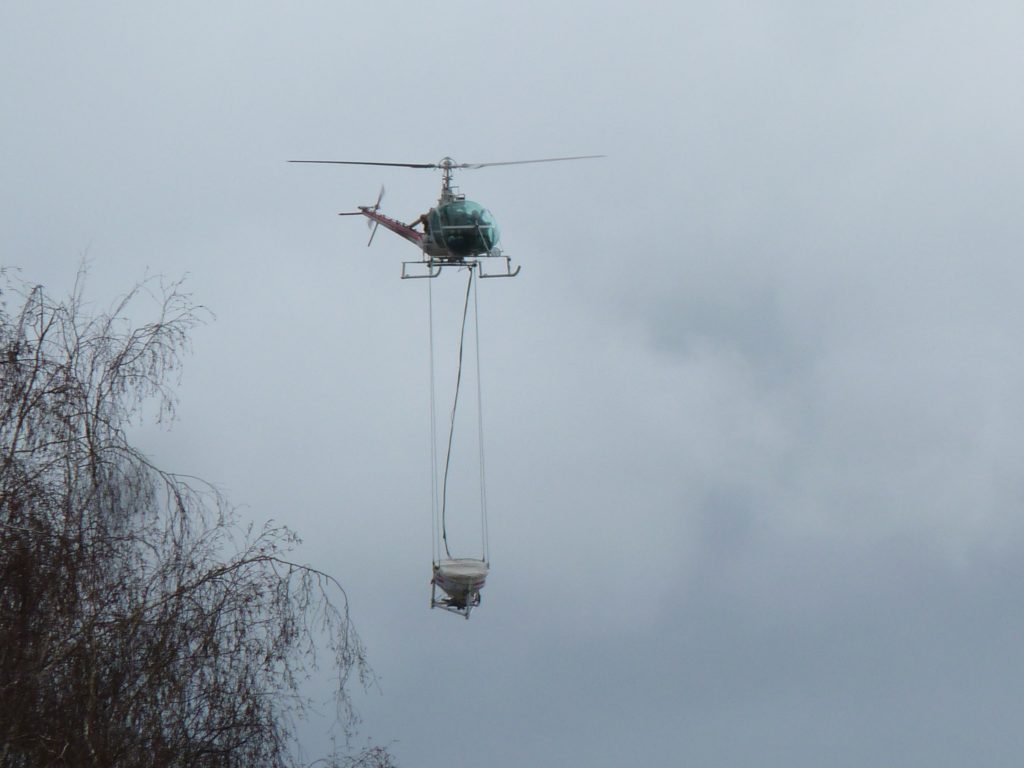In this blog, Carsten Brühl and his co-authors are introducing a review paper on the environmental and socioeconomic effects of mosquito control in Europe using the biocide Bacillus thuringiensis subsp. israelensis (Bti) that is an outcome of a workshop held in Landau.
Bti is widely used to reduce mosquito nuisance in Europe and other parts of the world. An evaluation of existing peer-reviewed literature shows that the risk of resistance of mosquitoes to Bti is limited despite spores and toxins persistence in the environment. Especially the reported effects on non-target organisms challenge the claimed environmental safety of Bti. Reducing mosquitoes and non-target midges that represent central food sources can have impacts on higher trophic levels in wetland food-webs such as birds and amphibians.

This analysis of the peer-reviewed literature is the most current and comprehensive evaluation of the impact of Bti used in mosquito control. The study was undertaken by an international research team of ecologists, ecotoxicologists, microbiologists and economists from four European institutions.
Increased transparency is requested by the study authors, especially since Bti mosquito control is funded by the public.
“There is not an adequate number of studies available to unequivocally conclude that Bti used for nuisance control of mosquitoes can be considered environmentally safe. Field studies were only performed at a few sites for limited time-spans. Additionally, in Europe there is no information available concerning where Bti is used for mosquito control and application timings, and Bti loads are not available for researchers and evaluating bodies.”
– Carsten Brühl, Senior Researcher in Community Ecology & Ecotoxicology, University of Koblenz-Landau, Germany
“I am glad to see that the seminal studies they launched in the Camargue in 2006 are giving rise to a global concern about Bti impacts in the environment. When Bti replaced chemical insecticides forty years ago, it was a step forward for the environment. However, inconsiderate use of Bti, especially in protected wetlands that were previously free of mosquito control, is clearly a step backward.”
– Brigitte Poulin, Head of the Ecosystem Department, Tour du Valat Research Institute, France
“Research on the public perception of mosquitoes and mosquito control focuses predominantly on nuisance and diseases, but the perception of the environmental risks of control programs are hardly evaluated. It is urgent to provide public policy makers with comprehensive and unbiased information about benefits as well as monetary and non-monetary costs associated with mosquito control.”
– Oliver Frör, Environmental Economist, at University of Koblenz-Landau, Germany
“Growing awareness of biodiversity decline has led to improved commitments, policies and practices for biodiversity conservation: wetlands now benefit from high conservation priority in Europe, yet they are heavily treated with the bacterio-insecticide Bti. Biodiversity is now higher on the political agenda in Europe than ever before, and the cost-benefit balance between biodiversity preservation and mosquito control needs to be re-evaluated in the light of the announced 6th biodiversity extinction crisis.”
– Laurence Després, Evolutionary Ecologist, Université Grenoble Alpes
Although Bti is currently the most selective and least toxic agent available for mosquito control, the involved researchers ask for independent monitoring of resistance, persistence and effects in ecosystems as well as a socio-economic assessment performed by bodies without conflicts of interest.
Until environmental effects can be evaluated as low risk to other animals in treated wetlands, alternative mosquito control methods such as repellents, natural predators or mosquito traps should be considered in conservation areas. Other options consist of improved wetland management, reduction in area and periods of Bti spraying and suspension of mosquito control in environmentally sensitive wetlands.
The review paper “Environmental and socioeconomic effects of mosquito control in Europe using the biocide Bacillus thuringiensis subsp. israelensis (Bti)” is authored by Carsten Brühl, Laurence Després, Oliver Frör, Chandrashekhar Patil, Brigitte Poulin, Guillaume Tetreau, and Stefanie Allgeier, and published in Science of the Total Environment.
More information on the associated workshop in Landau can be found in our previous blog:
